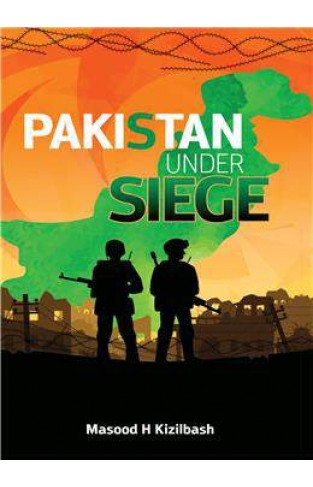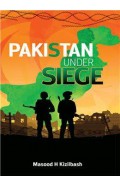- Home
- Books
- Sale
- 11.11 Sale UPTO 90% OFF
- 45% OFF
- Breakdown in Pakistan How Aid Is Eroding Institutions for Collective Action
Breakdown in Pakistan How Aid Is Eroding Institutions for Collective Action
By: Masooda Bano
-
Rs 2,967.25
- Rs 5,395.00
- 45%
You save Rs 2,427.75.
Due to constant currency fluctuation, prices are subject to change with or without notice.
Thirty percent of foreign development aid is channeled through NGOs or community-based organizations to improve service delivery to the poor, build social capital, and establish democracy in developing nations. However, growing evidence suggests that aid often erodes, rather than promotes, cooperation within developing nations. This book presents a rare, micro level account of the complex decision-making processes that bring individuals together to form collective-action platforms. It then examines why aid often breaks down the very institutions for collective action that it aims to promote.
Breakdown in Pakistan identifies concrete measures to check the erosion of cooperation in foreign aid scenarios. Pakistan is one of the largest recipients of international development aid, and therefore the empirical details presented are particularly relevant for policy. The book's argument is equally applicable to a number of other developing countries, and has important implications for recent discussions within the field of economics.
| Book | |
| What's in the Box? | 1 x Breakdown in Pakistan How Aid Is Eroding Institutions for Collective Action |
Thirty percent of foreign development aid is channeled through NGOs or community-based organizations to improve service delivery to the poor, build social capital, and establish democracy in developing nations. However, growing evidence suggests that aid often erodes, rather than promotes, cooperation within developing nations. This book presents a rare, micro level account of the complex decision-making processes that bring individuals together to form collective-action platforms. It then examines why aid often breaks down the very institutions for collective action that it aims to promote.
Breakdown in Pakistan identifies concrete measures to check the erosion of cooperation in foreign aid scenarios. Pakistan is one of the largest recipients of international development aid, and therefore the empirical details presented are particularly relevant for policy. The book's argument is equally applicable to a number of other developing countries, and has important implications for recent discussions within the field of economics.
The Rational Believer: Choices And Decisions In The Madrasas Of Pakistan
By: Masooda Bano
Rs 666.00 Rs 1,480.00 Ex Tax :Rs 666.00
Breakdown in Pakistan How Aid Is Eroding Institutions for Collective Action
By: Masooda Bano
Rs 2,967.25 Rs 5,395.00 Ex Tax :Rs 2,967.25
Zubin Mehta: A Musical Journey (An Authorized Biography)
By: VOID - Bakhtiar K. Dadabhoy
Rs 472.50 Rs 1,050.00 Ex Tax :Rs 472.50
The Origins of Political Order From Prehuman Times to the French RevolutioN
By: Francis Fukuyama
Rs 3,505.50 Rs 3,895.00 Ex Tax :Rs 3,505.50
Manning Up: How the Rise of Women Has Turned Men into Boys
By: Kay Hymowitz
Rs 646.75 Rs 995.00 Ex Tax :Rs 646.75
The Obama Syndrome: Surrender At Home War Abroad
By: Tariq Ali
Rs 1,165.50 Rs 1,295.00 Ex Tax :Rs 1,165.50
The Quest For Meaning: Developing A Philosophy Of Pluralism
By: Tariq Ramadan
Rs 1,255.50 Rs 1,395.00 Ex Tax :Rs 1,255.50
The Pakistan US Conundrum Jihadists The Military And The People The Struggle For Control
By: Yunas Samad
Rs 1,255.50 Rs 1,395.00 Ex Tax :Rs 1,255.50
An Enemy We Created: The Myth Of The Taliban Al Qaeda Merger In Afghanistan 19702010
By: Alex Strick van Linschoten
Rs 3,412.50 Rs 5,250.00 Ex Tax :Rs 3,412.50
WikiLeaks: Inside Julian Assanges War on Secrecy
By: David Leigh & Luke Harding
Rs 552.50 Rs 850.00 Ex Tax :Rs 552.50
No similar books from this author available at the moment.
No recently viewed books available at the moment.
Zubin Mehta: A Musical Journey (An Authorized Biography)
By: VOID - Bakhtiar K. Dadabhoy
Rs 472.50 Rs 1,050.00 Ex Tax :Rs 472.50
The Rational Believer: Choices And Decisions In The Madrasas Of Pakistan
By: Masooda Bano
Rs 666.00 Rs 1,480.00 Ex Tax :Rs 666.00
Breakdown in Pakistan How Aid Is Eroding Institutions for Collective Action
By: Masooda Bano
Rs 2,967.25 Rs 5,395.00 Ex Tax :Rs 2,967.25














-120x187.jpg?q6)





-120x187.jpg?q6)



-120x187.jpg?q6)



